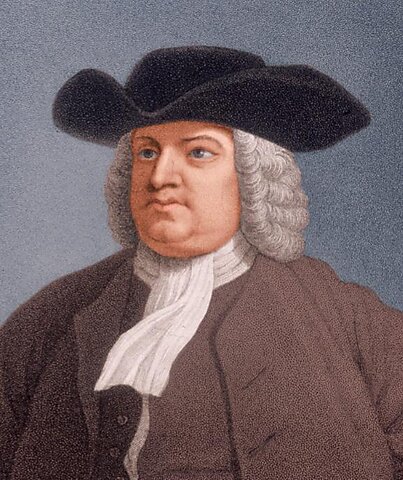Mike Fox
Three hundred and fifty-five years ago today, in what would later come to define the historic conception of a criminal jury, an English jury refused to tender an unjust verdict.
As the founder of Pennsylvania, William Penn may now be a household name. But in 1670, Penn wasn’t yet a celebrated figure in American history. He was a young Quaker preacher living in London—a member of a religious group that the government saw as a threat. The law at the time, known as the Conventicle Act, made it illegal for more than five people to gather for worship outside the state-sanctioned Church of England.
The conception of jury independence dates back to a dramatic and defiant moment in English history. Penn and his fellow Quaker, William Mead, were arrested for preaching to a crowd on a London street. There was no doubt they were guilty under the law. The prosecution had witnesses, and the judge had every intention of securing a conviction. But the law was unjust.
The trial was a spectacle. The judge—determined to punish the Quakers—tried to compel the jury to reach a guilty verdict. When jurors failed to oblige, the judge rejected their verdict, locked them up without food, water, or heat, and threatened them with fines and imprisonment. But Edward Bushel and his fellow jurors held their ground.
After two days of this harsh treatment, the jury came back with a final verdict: Not Guilty. For refusing to do the government’s bidding, the judge fined the jurors, held them in contempt, and ordered them imprisoned until they paid the fines.
But Edward Bushel refused to be silenced. Rather than pay the fine, he challenged his imprisonment. It was then that Court of Common Pleas Chief Justice Sir John Vaughan declared that the jury’s decision was its own. Accordingly, Vaughan explained that jurors cannot be penalized on account of their verdicts.
Bushel’s Case is more than just a dusty legal precedent. This crucial decision established what we now know as jury independence. The Framers recognized that the jury trial was a cornerstone of fairness and self-governance—a vital check on the very power they were helping to create. Bushel’s case is a powerful reminder of the unique role that ordinary people play in our justice system. The citizen jury is not simply a passive audience but a vital check on the exercise of government power.
With a president who has wielded the immense power of the federal government against anyone who stands in his way, this historical role of the jury is all the more important. Just as Bushel rejected Penn and Mead’s ill-conceived prosecution, jurors today can—and should—defy the unjust application of laws that tear at the very fabric of civil society.

